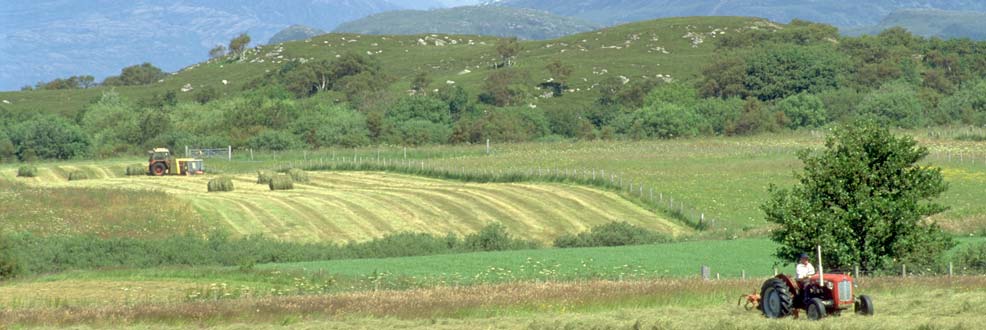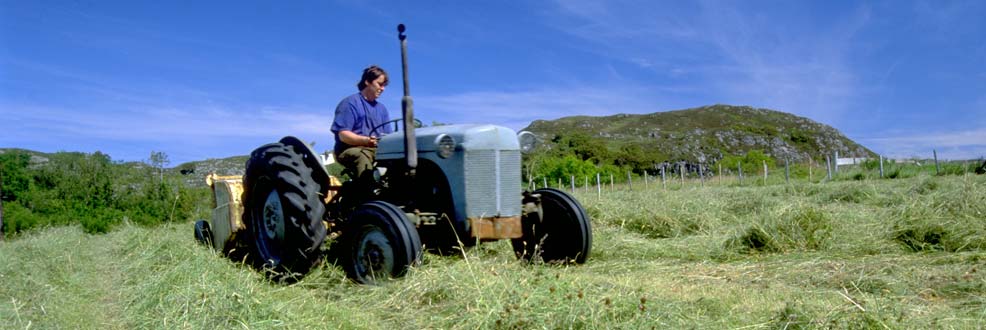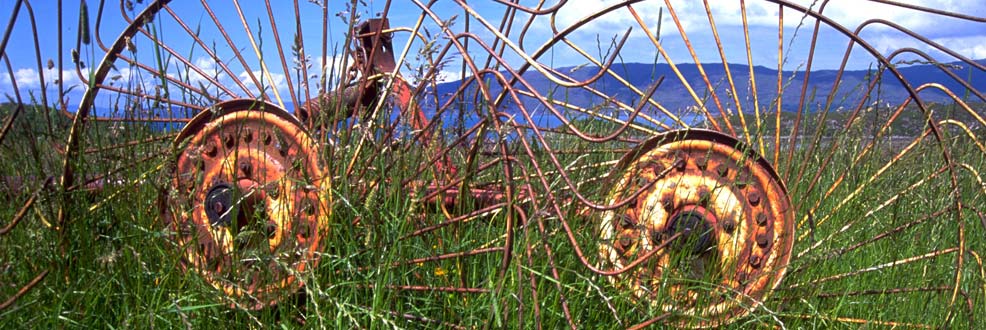Energy
Installing a renewable energy system is a way of utilising croft land to generate an income, reduce energy bills, secure a reliable source of power and reduce carbon emissions.
In 2014 the Scottish Government published its Agri-renewables Strategy for Scotland, recognising the important role the sector could play in meeting its challenging carbon emissions targets.
‘The Agri-renewables Strategy for Scotland is a sectoral Routemap which sits alongside the 2020 Routemap for Renewable Energy in Scotland and the Microgeneration Strategy for Scotland. The Strategy outlines the Scottish Government’s aims and ambitions for the growth of agri-renewables in Scotland, building on what has already been achieved. This Strategy shows how agri-renewables can contribute to the aim of building a cleaner, greener Scotland. It also sets out how far we have come in capitalising on the opportunities offered and where we see the future for agri-renewables. It demonstrates how the Scottish Government, working in collaboration with industry and other stakeholders, will continue to support development to achieve a sustainable and viable market for agri-renewables to help us deliver the transition to a low carbon economy.’
In the foreward, Cabinet Secretary Richard Lochhead said, ‘Scotland has massive green energy potential. Farmers, crofters and land managers have access to our nation’s abundance of natural resources and are ideally placed to contribute towards growing Scotland’s low carbon economy. There has been a great deal of enthusiasm for renewables within the farming sector and there are some excellent examples of land managers capturing the benefits from green energy generation both for their businesses and their local communities. I recognise that recent years have been turbulent for the sector and acknowledge and recognise that there are challenges in front of us. I believe our goals are within reach and that we have much to celebrate in what has been achieved by Scottish agriculture in relation to renewables.’
SRUC have published a guide to Farm Scale Renewable Energy, which ‘highlights the main benefits, issues, resource requirements, financial considerations and any other considerations you need to take into account for each renewable energy technology. This guide will help you start to identify which technology will best fit with your farm and your objectives. Confirming whether or not a renewable technology will be economically and technically viable on your farm will require a detailed and thorough appraisal’.
Community Energy Scotland offers community support for renewables projects: ‘Are you interested in developing a renewable energy project to benefit your community but don’t know where to start? Are you struggling to find the time to move a project forward? We offer a unified project management service to community groups and members. We provide detailed, independent and on going support for all aspects of community energy project development, from micro to megawatt scale; we help broadcast the specific difficulties faced by the community sector; and by bringing communities and policy makers together, we try to find new ways forward.’
Energy Saving Trust offers advice on home energy efficiency, including domestic home insulation and also domestic renewable energy, including information on grants and loans available in Scotland.
Farming for a Better Climate brings together advice about ‘working with farmers to find practical ways to move towards a more profitable, low carbon future, adapt to a changing climate and secure farm viability for future generations.’
Farming Futures claims to be ‘the independent, collaborative news and information source for farming & food.’ This site has hundreds of articles on all aspects of renewable energy in its library of resources.
The Renewable Development Initiative 'was established with the aim of providing sound independent advice to farmers and land managers across Scotland on renewable energy.
By showcasing renewable technologies in action on farms with those that live and work with them, we aimed to provide people with a far greater understanding about the true benefits available and what can be achieved.’ The initiative followed the fortunes of 27 farms across Scotland as they installed a range of renewable technologies.
SAC Consulting Renewables Team provide expert, impartial advice about a wide range of renewable energy schemes, with an agricultural emphasis.
SNH have information on their approach to renewables and have produced a document, Renewables Guidance, that brings together all their guidance on renewables and the environment.
Scottish Renewables ‘is the voice of renewable energy in Scotland and is committed to realising the full economic, social and environmental benefits of renewable energy for our country.’
The Microgeneration Certification Scheme (MCS) ‘is a nationally recognised quality assurance scheme, supported by the Department for Business, Energy & Industrial Strategy. MCS certifies microgeneration technologies used to produce electricity and heat from renewable sources. MCS is also an eligibility requirement for the Government's financial incentives, which include the Feed-in Tariff and the Renewable Heat Incentive’.
The Consumers pages of this site contain useful information for anyone looking to install a renewables system, including searching for an installer.











